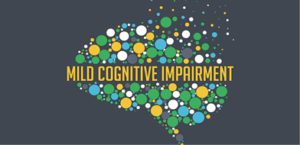A monthly article brought to you by Senior Services’ Memory Support Programs.
Have you ever wondered if your forgetfulness is “normal” for your age or if you are truly experiencing changes in your brain? How do you determine what “normal aging” is? Well, let’s explore that further.
In terms of cognitive changes during normal aging, the process brings forward subtle changes in your cognition. What that means is, committing new information to memory may take longer, but you will have the ability to remember information when given more time. For example, if someone asks you the first name of your neighbor and you cannot remember it in the moment but you are able to recall the name later on- that is a sign of normal aging.
With this being said, the structure of our brain does change as we age. Overall volume of the brain begins to shrink when we’re in our 30s and 40s, with the rate of shrinkage increasing around age 60. Also, the number of neurons and their connections decline which can affect learning and memory. Lastly, the brain generates less chemical messengers such as dopamine and serotonin as we age.
- So what are some everyday examples of typical age related changes?

- Making occasional errors when managing finances or bills.
- Occasionally needing help to use microwave settings or to record a TV show.
- Getting confused about the day of the week but figuring it out later
- Sometimes having trouble finding the right word.
- Misplacing things from time to time and retracing steps to find them.
- Sometimes feeling uninterested in family or social obligations.
- Forgetting someone’s name, and remembering it later.
So what if you are experiencing changes more than what we have already discussed? This could be an indicator of Mild Cognitive Impairment, or MCI. What is MCI?
MCI is not the same as “normal aging” or “dementia”. It is considered the stage between normal forgetfulness due to aging and the development of dementia. MCI is a syndrome of cognitive decline greater than expected for an individual’s age and education level but it does not interfere notably with daily life. Those living with MCI are often aware of their forgetfulness. It is important to note that not everyone with MCI will develop dementia. It is estimated that approximately half of the people living with MCI will develop dementia within five years.
Some examples of MCI include:
- You forget things more often.
- You forget important events such as appointments or social engagements.
- You lose your train of thought or the thread of conversations, books or movies.
- You feel overwhelmed by making decisions, planning steps to accomplish a task or understanding instructions.
- You start to have trouble finding your way around familiar environments.
- You become more impulsive or show increasingly poor judgment.
- Your family and friends notice any of these changes.
When you are starting to notice memory changes, seeking early detection is key. Senior Services offers an array of memory support programs including confidential memory screenings to obtain a cognitive baseline, a memory loss program, and educational classes along with support from Seasons Adult Day Health Services. If you or someone you know is experiencing increasing changes with their memory and could benefit from additional services, please contact Amy Sheridan, Family Support and Activity Manager at 989-633-3764.
Check out our section, Our Mind Matters, next month as we will dive into dementia.

